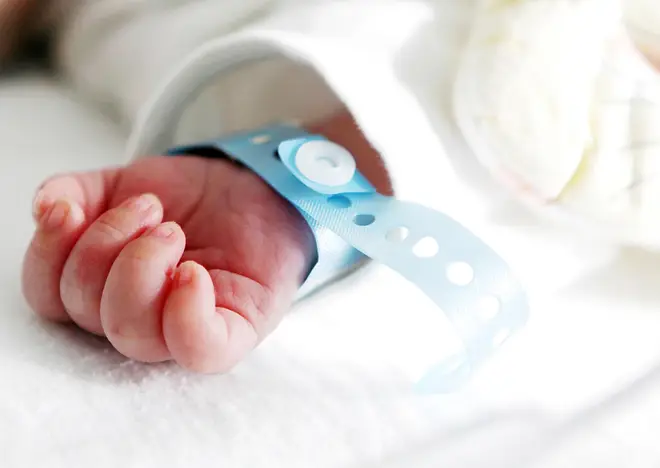
Tonight with Andrew Marr 6pm - 7pm
14 January 2022, 18:08 | Updated: 7 June 2023, 08:56

The proportion of infants in hospital with coronavirus has increased with the Omicron wave but most cases are mild, scientists have said.
The average length of stay is really low - around two days - and a very small number of these children need oxygen or other help, the data by the Scientific Advisory Group for Emergencies (Sage) suggests.
The Isaric/Co-CIN study, published on Friday, shows there has been a shift in the proportion of children in hospital with coronavirus who are under the age of one - in comparison to previous waves.
The number of Covid-positive admissions, whatever the cause, is expected to rise when there is more infection around.
However, the new data shows there has been a higher proportion since the arrival of the Omicron variant which swept across the country towards the end of last year.
The paper says there are proportionally more infants under the age of one, in data from the most recent four weeks from December 14 2021 to January 12 2022.
It states "no other strong signal of a change in patient characteristics, severity, or management is seen".
Read more: Head of Covid taskforce Kate Josephs apologises for 'boozy' leaving party
Read more: Ski bookings surge as France relaxes travel restrictions for Brits

Boris Johnson sets accelerated new year booster target in face of Omicron 'tidal wave'
In previous Covid waves about 30% of children in hospital with the virus were under the age of one, experts have said.
Now, the latest figures show we are seeing essentially 42% of the children admitted are infants.
Calum Semple, a professor in child health and outbreak medicine at the University of Liverpool, said infants were generally experiencing very mild symptoms.
He said: "Our study has shown that there has been an increased proportion of children being admitted in the last four weeks associated with the onset of Omicron and this has been particularly driven by children under the age of one.
"The striking feature is that we're now seeing essentially 42% of the children are under the age of one, whereas previously it was around about 30%.
"It does appear to be affecting children from the most deprived areas worse - more than any other group.
Read more: Self-isolation for fully-vaccinated people with Covid slashed from seven days to five
Read more: Beleaguered Boris cancels trip to vaccine centre after family member catches Covid

Sajid Javid outlines UK's booster programme
"The big question is: are these children desperately ill or not? And I really want to emphasise here the fact that these are not particularly sick infants.
"In fact, they're coming in for short periods of time for investigations."
Experts say parents are doing the right thing and taking their children to hospital, and there is plenty of paediatric capacity in NHS hospitals to deal with the cases.
The children are being seen by doctors, screened and sent home with good outcomes, they add.
Read more: 'National treasure' Jonathan Van-Tam to step down as deputy chief medical officer
Russell Viner, professor of child and adolescent health at University College London, said: "I think we're seeing Covid behaving a bit more like the normal winter viruses that you see in children.
"So parents are really experiencing that.
"Parents - just do what you always do for winter viruses and children. If you're worried, talk to your GP - the GPs are open.
"If you're really worried, ring NHS 111 or take your child to to hospital.
"We hadn't said this before, but our hospitals are not full, our children's wards have space, our children's intensive cares have space, the NHS is open, and is there."